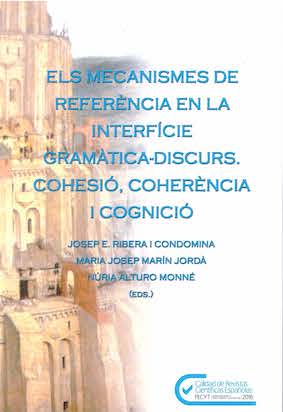Spanish null complement anaphora at the grammar-discourse interface
DOI:
https://doi.org/10.7203/qf.23.13522Keywords:
reference, null complement anaphora, ellipsis, discourse relations, NCA Abstract
Abstract
The study of null complement anaphora (NCA) is important for the grammar-discourse interface as it seems to incarnate some of the core processes commonly found in other discourse phenomena, namely: reference, anaphora, ellipsis, inference, salience, or accommodation. Although NCA has been studied extensively, the debate whether it is an elliptical or an anaphoric process is still ongoing. This paper contributes to the view of NCA as a deep anaphor by providing evidence from Spanish discourse. I argue that NCA is an anaphor that selects the most prominent antecedent in well-defined discourse hierarchical structures. My analysis is mainly based on the comparison among Spanish neuter pronouns and NCA, and on the observed similar behavior shown by NCA and pronouns under discourse embedding conditions. Previous accounts on NCA are reviewed (Depiante 2000, 2001; Williamson 2012), and a tentative analysis of VP ellipsis based on discourse relations (Hardt & Romero 2004) is applied to Spanish NCA.
 Downloads
Downloads
Downloads
Published
How to Cite
-
Abstract693
-
PDF389
Issue
Section
License
 Este obra está bajo una licencia de Creative Commons Reconocimiento-NoComercial-SinObraDerivada 4.0 Internacional.
Este obra está bajo una licencia de Creative Commons Reconocimiento-NoComercial-SinObraDerivada 4.0 Internacional.
Authors who publish with this journal agree to the following terms:
- Authors retain copyright and grant the journal right of first publication with the work simultaneously licensed under a Creative Commons Attribution License that allows others to share the work with an acknowledgement of the work's authorship and initial publication in this journal.
- Authors are able to enter into separate, additional contractual arrangements for the non-exclusive distribution of the journal's published version of the work (e.g., post it to an institutional repository or publish it in a book), with an acknowledgement of its initial publication in this journal.
- Authors are permitted and encouraged to post their work online (e.g., in institutional repositories or on their website) prior to and during the submission process, as it can lead to productive exchanges, as well as earlier and greater citation of published work (See The Effect of Open Access).



